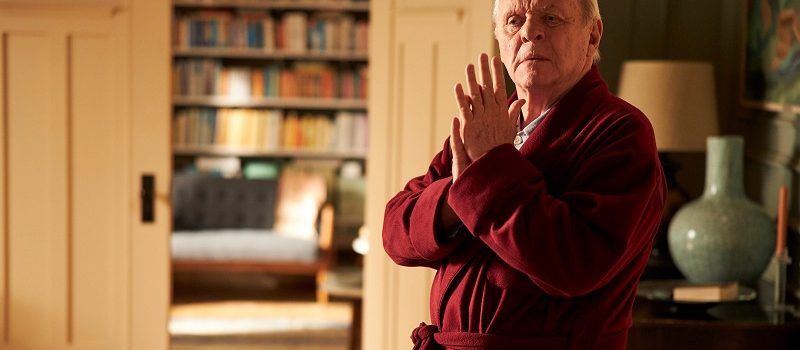Somewhere out there are two individuals—James Franco and Anne Hathaway—who are pretty, pretty happy. Why? Because in this era of short-term memory, audiences will remember the boring, non-insightful mess that was the 93rd Academy Awards.
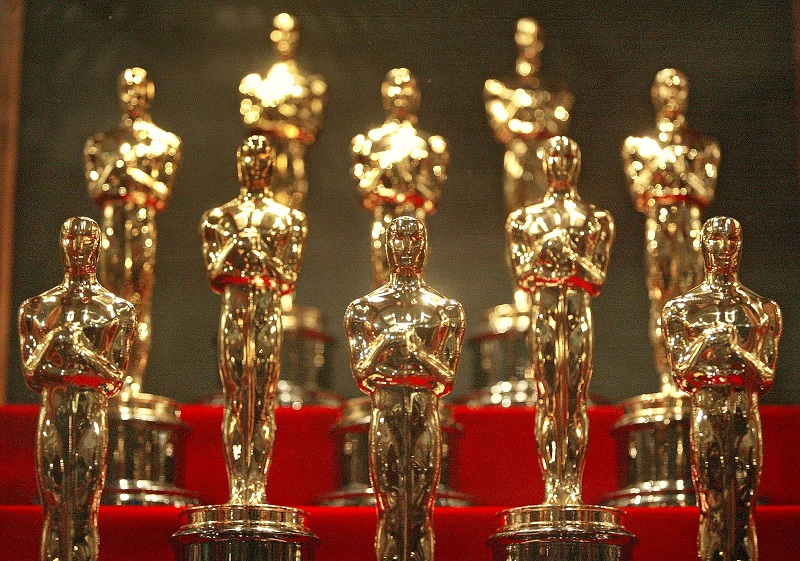
The Movie Mensch’s Oscar Watch proudly presents 10 takeaways about this year’s awards show, as well as thoughts about what to do in 2022 so that this sinking ship is corrected.
Remember when the Oscars were must-see television? The Movie Mensch does. I recall being in sixth or seventh grade and experiencing the show with my mother (I credit her for contributing to my passion for film) as we marveled over the glamour, yes, but also Oscar’s celebration of excellence. Many of the films nominated, I had seen since we were regulars at the “art house” cinema in Hartford.
So, for this writer, this is personal. The Academy Awards are part of the fabric of my life and something (among many things) that connects me to my mother. It was her who took me to the art-house cinema or the screens at Hartford’s Trinity College. At a young age, there was a reverence to the art of film and more importantly, it’s a one-night-a-year celebration of all things cinematic. Then, there were the discussions afterward, which were just about as much fun as the show itself.
I love sports, but the Oscars are a film appreciator’s Super Bowl. It is for me. So, that’s why it hurts me to write what I have to about the program that finally ended sometime after 11: 19 p.m. EST.
In 2020, merely days before our world would be altered forever, the powers that be decided that they would go without a host after a “controversy” over its selected emcee, Kevin Hart. The result was a mixed bag of success and “what did I just watch?”
One thing it did accomplish was it felt like a show. We were entertained by some of it, not so with some other parts. Between the montages, the musical acts, and the inherent spontaneity of flying by the seat of your Oscar pants without a host, it all added up to a decent show.

Now, in the age of an international pandemic, I realize that putting on a show like the Oscars must follow strict protocols for the virus, including social distancing, temperature taking, and the like. Regina King addressed that in the opening remarks, speaking to how much everyone in attendance was tested for Covid-19 and every other Covid prevention tactic utilized by the Academy.
What exactly was missing? What should be added? Also, Oscar Watch will address who won and who should have won. Read on… let’s get after it.
1. King is King!
We were with it at its early moments. Oscar-winner King (If Beale Street Could Talk and director of the two-time Oscar-nominated One Night in Miami) sauntered her way into Los Angeles’ Union Station. She did so in a manner that was cinematic. It had everything to do with which how she carried herself and the method with which the entire entrance was shot. Text over images from Union Station announced those who would be “starring” in this endeavor. It felt as if we were about to enter the movies, while simultaneously celebrating movies.
Then, as soon as King finished her duties, the entire effort immediately went off the rails. It was like a light had been suddenly turned off. The excitement from King was palpable and when she concluded her duties, the air left the building.

It felt like a lost driver who refuses to ask for directions. Given the years that are 2020/2021 and all the turmoil, death, sickness, and human triumphs, the Oscars should have been a celebration of our resilience. Instead, what viewers got was the most pedantic of 139-minute poor excuses for entertainment. That pained me to write. Usually, Oscar night is one of the more thrilling evenings of the calendar year. Not in 2021.
It’s not like it was a complete train wreck. History was made as an Asian woman, Chloe Zhao, won Best Director.
Now, the Grammys have mastered this art of dishing awards quickly and getting to the musical acts that jam pack the program. Even in a pandemic, the Recording Academy managed to put on a show that was literally electric. Part of the reasons for the 93rd Oscars failure is number two on our terrible ten.
2. The Day the Music Died
Calling the lack of music from the broadcast of the Oscars “The Day the Music Died” may seem a little harsh. But don’t doubt that the universal language that is music and its ability to transport us on so many levels is integral to an Oscar broadcast’s resonance and success.
Those five Best Song nominees got their due, don’t get me wrong. But it was during the pre-show that commenced at 6:30 p.m. EST. Now, nobody on the west coast will start watching the Oscars at 3:30 p.m., knowing that you will be stuck to that chair or couch of yours for at least three hours after the ninety-minute preshow. If the excuse was “saving time” for the notoriously long show, what they did during the show knocks that argument down to the ground, and out for the count.

Part of any show, especially one made for television, is inherently more exciting with the presence of music. The artists’ performances were pre-taped (again, due to the virus). With its beginning of Husavik (My Home Town) being belted out by the song’s blissfully gifted singer—Molly Sandén, a.k.a. Sweden’s equivalent of Adele in Iceland—the locale central to the film Eurovision Song Contest: The Story of Fire Saga. It produced chills. Surrounded by an Icelandic girls’ choir and the precious sight of the Icelandic town, it was an epic experience. Just think if that pre-taped performance was inserted into the show. Immediately, the quality shoots through the roof. The same thing can be said by the pre-taped musical explosion by H.E.R. (which eventually won) for Fight for You from Judas and the Black Messiah. The sad thing for a majority of Oscar viewers… they never saw it.
There is absolutely no excuse for not featuring pre-taped performances of the best cinematic sonic songs of the year that was in the show itself. That alone would have livened the experience and probably spawned a few viral moments. I know I’ve already replayed Sandén and H.E.R.’s performances several times since. But it’s hard to have something go viral if no one is there to experience it. Instead…
3. Oscar Musical Trivia Terror
Producer/director Steven Soderbergh, or someone in his creative circle, thought it was a solid idea to break up the “here’s a presenter, read the nominees, don’t show any clips, and hand the victor a golden trophy” without that emotive tether that is irreplaceable. Music does unite us. One could even argue that the five songs that were nominated each are important pieces that speak to the world of 2020/2021.
There are missed opportunities, and then there is the braindead decision to not have any music in the program—besides what Musical Director Questlove played with his DJ equipment.
Oh, but they had time for a musical trivia bit! Questlove played a track from movies’ past, and then Lil Ren Howard would give someone like Oscar winner Daniel Kaluuya a question about said song. For example, the Judas and the Black Messiah star was asked, “was Donna Summer’s Last Dance a nominee, a winner, or none of the above?” He didn’t know. Then, there was a nominee for Best Actress, Andra Day (The United States vs. Billie Holiday), who was asked the same question about Prince’s Purple Rain. It was revealed that the score won an Oscar, but not a single song from the movie was not nominated for Best Song (weird, right?). She didn’t know that answer either. It was awkward and pointless. But not as awkward as…
4. Glenn Close Does Da Butt on Live Television!
Now, the eight-time Oscar nominee (with no wins!) did know the answer. She answered that her song was from Spike Lee’s legendary She’s Gotta Have It. Then, Howard asked her to literally do Da Butt. In front of millions of people planet-wide in a move that is instantly gone viral.
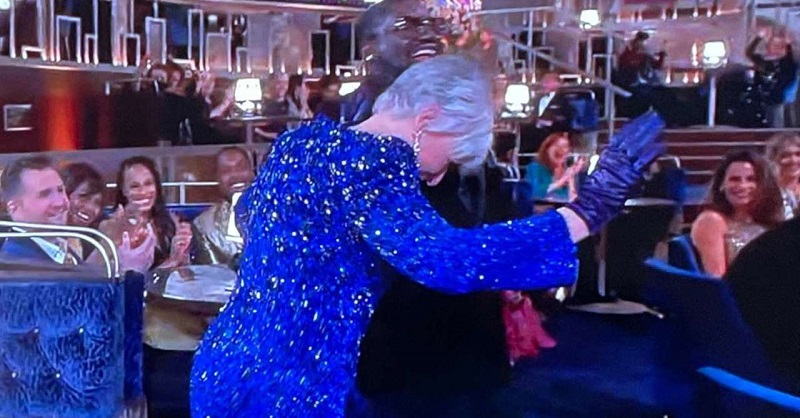
The Hillbilly Elegy star did it, not even blinking. So, you’re telling me that we have time for that horrorshow, but not featuring those pre-taped performances of a quintet of songs whose sonic succulence rose to the top of the movie music heap during this last year? No, just no.
5. Mank Bests Nomadland for Best Cinematography, Then Academy Proves They’re Wrong!
Mank won Best Cinematography, over what one would deduce was the favorite, Nomadland. There are lots to shoot out there that are more gorgeously personified than the landscape of the USA. So, later in the broadcast, during one of the rarest of moments tonight—the use of a clip—the utter expanse-soaked gorgeousness of Zhao’s film was shown.
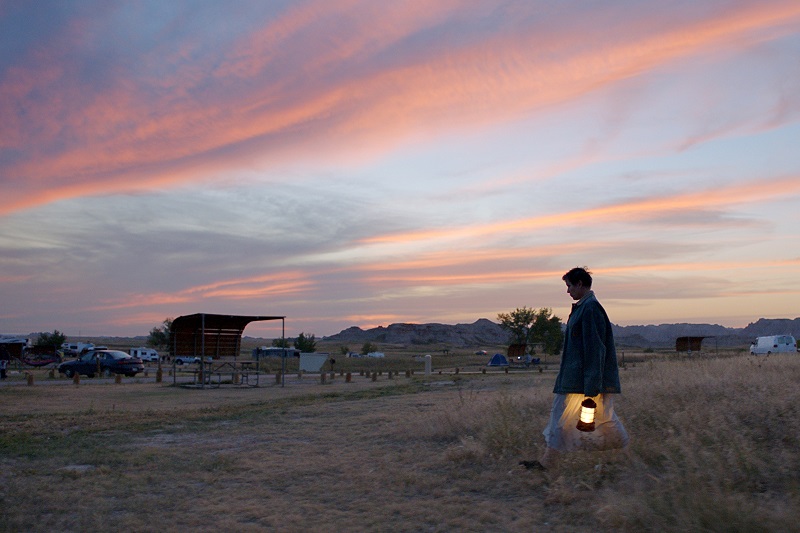
With its pastel-colored skies, it was visual manna. The Academy had inherently illustrated how wrong the cinematography vote was this year. No other film came close in this department. I’ve tried to use this concept rarely, but here it is a must. The cinematography, performed by Joshua James Richards, was as much of a character in Nomadland as any human soul.
6. Why You Do What You Do…
There was an awkwardness that permeated the entire affair, sadly. Never was that more clear than when presenters personally addressed each nominee about how they came into their profession. That was all instead of actually showing us with clips from the work they were so righteously nominated! Instead, we got a “did you know what Riz Ahmed used to do something other than acting to pay the bills.” OK, in some cases it was surprising and helped inform the work that was already experienced. But for the most part, let the work speak for itself. Give us a scene from Sound of Metal that shows off Ahmed’s gifts that scored him the nomination in the first place for all the people out there who have not made the time or effort to see the work. That is one of the great things about the Academy Awards. The thing is, for most of the country, it was their first time seeing any footage of any kind from the nominated movie. There’s a curiosity there. We don’t need a well-meaning how-to on making it in Hollywood.
7. Frances v. Meryl
McDormand is an incredible artist. For that, there is no debate. She has wowed us since she was a Coen brothers’ actress of choice in films such as Blood Simple back in 1984. She would marry Joel Cohen and balance time with her husband and his brother and non-Coen-brothers work. It all left us breathless. She worked with Robert Altman in 1993’s Short Cuts and 1996’s Lone Star from director John Sayles.
Her victory for the role Fern in Nomadland is deserved, don’t get me wrong. But, she had just won an(other) Oscar for 2018’s Three Billboards Outside Ebbing, Missouri. McDormand possesses an insight and an unspeakable sixth sense to the characters she embodies. It’s not that she didn’t deserve the win for Best Actress for Nomadland. That victory delivered her third, in this category!
Often cited for being the Best Actress on the Planet, Meryl Streep has won three Academy Awards. Yet one of them is in the Supporting Actress category. All three of McDormand’s awards have been in the lead category, Best Actress. Yes, Streep has an unprecedented 16 career nominations. But like in sports, let’s look at those victory percentages, the championships.
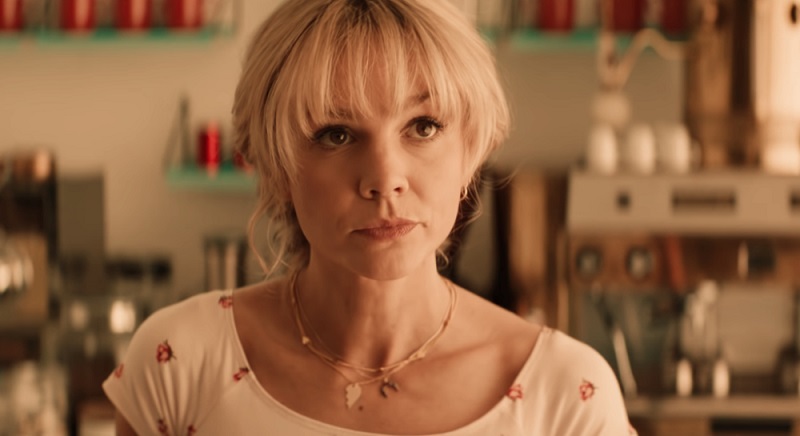
Here’s the thinking that was completely incorrect!
There is no way the Academy would reward someone so close to their previous victory. Wrong. What Carey Mulligan exhibited n Promising Young Woman is not only searing but timely. McDormand’s film was timely too, what with countless folks displaced by the pandemic who are now currently living in their car. It’s just that with the #MeToo movement on the tips of hundreds of millions’ tongues, coupled with what Mulligan achieved with her turn as Cassandra, it’s a performance that should have been honored with the golden statue.
There’s a silver lining for fans of Mulligan. Think about it. How many women will watch Promising Young Woman and recognize the signs in their own life? The power and confidence to say “no” and have the person at the receiving end of it know you mean severe business is priceless and potentially life-saving.
What the British actress achieved with (the now) Oscar-winning writer-director Emerald Fennell is practically otherworldly. Her performance and the film itself are a flaming warning sign to men everywhere that women are keenly aware of what is OK and what is not when it comes to sexual relations.
That’s a tricky element to capture in a characterization. Somehow, someway, Mulligan can take great pride in that.
8. A Star Is Born
When Yuh-Jung Youn arrived in Minari, she accomplished something remarkable. Usually working with lighting involves a film set crew. But when her grandmother Soonja arrives at her child’s struggling (on many fronts) Arkansas farm, the “Korean Meryl Streep”—or should we say, Frances McDormand?!—she lit up every facet of the film and the family at the center of it all.
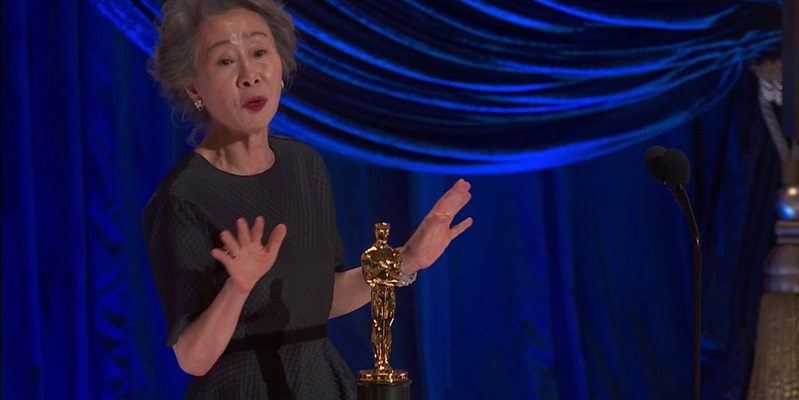
Writer-director Lee Isaac Chung’s bared his soul to the world by telling this true story of what he went through as a young boy when his father took them from Korea to San Francisco to central Arkansas. It was rough. There were cultural and language issues. There were farming and home issues. One got the sense that this was not going to end well. The millisecond grandma arrived on that fertile stretch of Arkansas land it was as if the sun had increased its brightness beyond what anyone thinks is possible.
Not only did she achieve greatness with her work on Minari, but she also gave one of the best “thank you” speeches of the evening. It was endearing. It was heartfelt and self-deprecating. I wouldn’t be surprised if the offers for roles started (if they haven’t already) for the veteran thespian whose introduction to American audiences could not have been more welcomed.
9. Papa… Preach!
The consensus among film twitter and award prognosticators was that Chadwick Boseman would win a posthumous Oscar for his electric work on Ma Rainey’s Black Bottom. There were scenes in the film where director George C. Wolfe had to take a step back from inhaling the greatness emanating from the late actor. The nomination was beyond deserved. In fact, it seemed like a given that he would win, and his widow would deliver a speech that had us all in tears.
That could explain why Soderbergh decided to change things up and not award Best Picture last, but Best Actor. How awesome would that have been to close on the show with a walk down memory lane with the finest actors of his generation?
Instead, the man who deserved the honor won. Anthony Hopkins’ achieved something unbelievable with his role as an older and seemingly frail and forgetful man of mid-80s years. With The Father, he broke me into a million little pieces with his performance, particularly the final 10 minutes. It’s raw. It’s real.
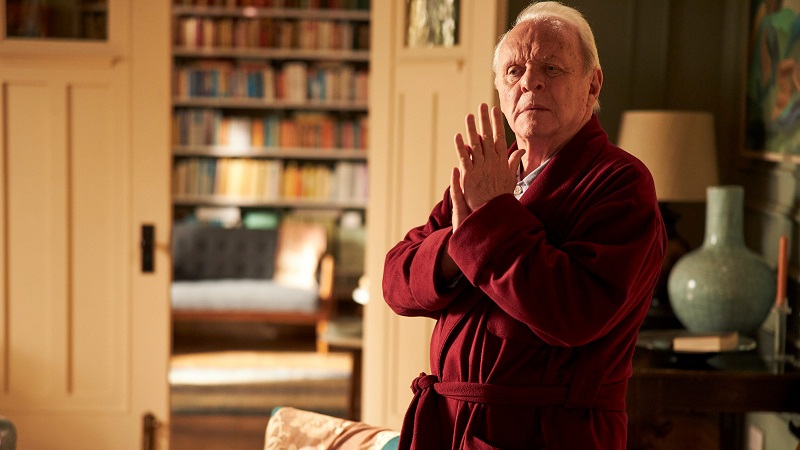
Anyone who has had a parent who goes through any kind of memory loss ailment can identify, and those who have escaped that cruel fate know someone who has dealt with it first-hand. The way in which Hopkins was able to achieve that complex web of thoughts that go through his head is a masterclass. Actually, it transcends the art form. It’s iconic.
10. James Franco & Anne Hathaway, Time to Breathe Easy
Somewhere last night, the notorious Oscar hosts of 2011 are doing shots and dancing a jig. They are firmly no longer charged with the moniker of overseeing the worst Academy Awards broadcast of all time. What occurred at the 93rd Oscars was a poor excuse for an Academy Awards, much less a show to entertain millions around the globe.

